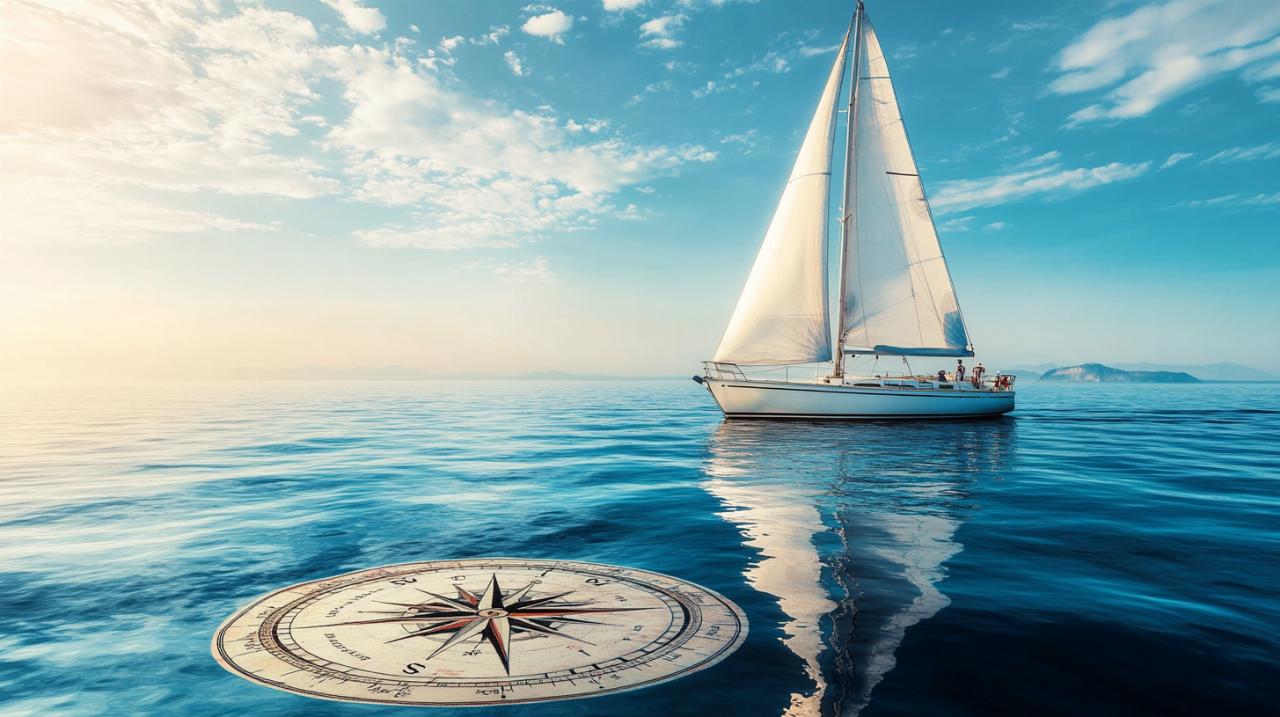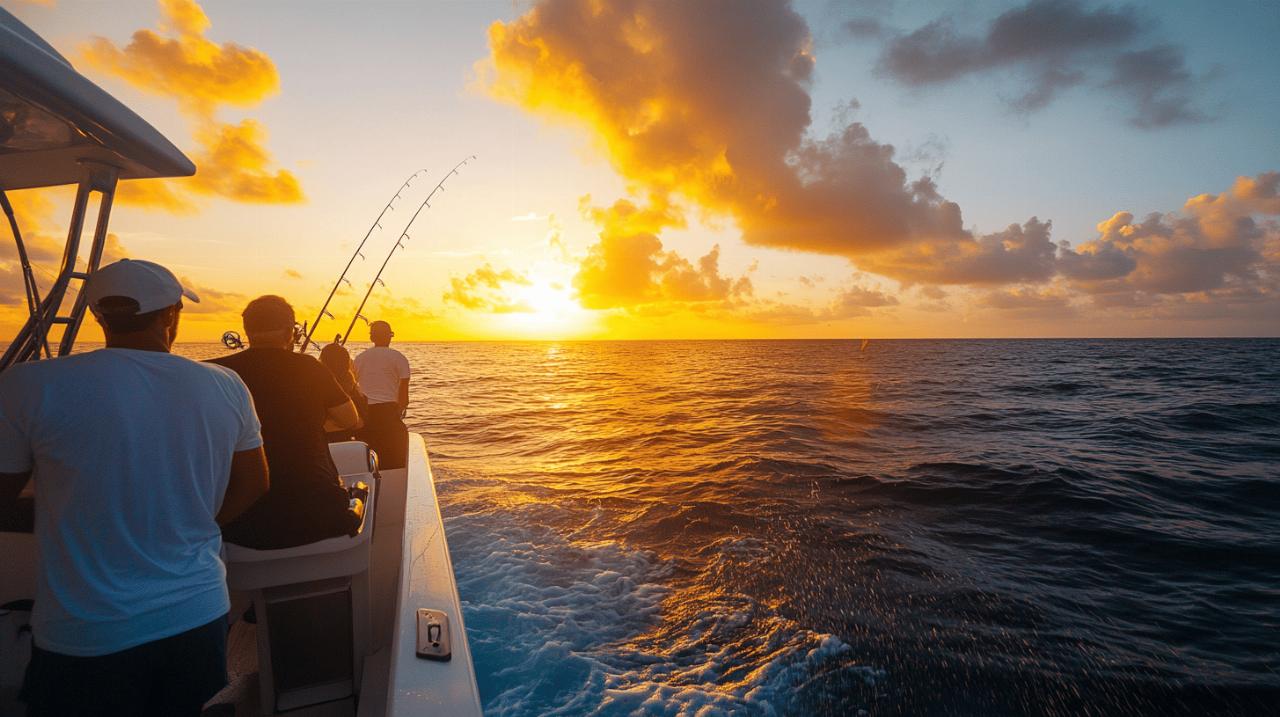Understanding french boating permits
Navigating the waters around France offers breathtaking coastlines, serene inland waterways, and the boundless adventure of the open sea. Before setting sail, however, it's essential to understand the French boating licence system. These permits aren't just official requirements—they're your passport to safely enjoying the 8,500 kilometres of waterways France has to offer, from the sparkling Mediterranean to tranquil canals and rivers.
The french maritime licensing system
The French boat licensing system is designed to ensure maritime safety for all water users. It distinguishes between different types of navigation, primarily separating coastal sailing from offshore adventures and inland waterway cruising. Each licence type corresponds to specific navigational capabilities, boat sizes, and power ratings. Understanding these distinctions is crucial for anyone looking to captain a vessel in French waters, as the licences teach vital maritime safety rules including recognition of marine signs and proper emergency responses.
Who Needs a Boating Permit in France
The requirement for a French boat licence hinges primarily on your vessel's engine power. If you're operating a boat with an engine exceeding 6 horsepower (4.5 kW)—including jet skis—you'll need an appropriate permit. This applies to both residents and visitors, though foreigners may sometimes use their home country licences, depending on reciprocal agreements. It's worth noting that sailboats with auxiliary engines below 6 horsepower typically don't require a licence, but it's always advisable to verify local regulations. For safety and legal compliance, obtaining the proper certification before heading out on French waters is essential.
Coastal permit (permis côtier) essentials
The coastal licence, or 'Permis Côtier', serves as the entry point for most recreational boaters in France. It provides a solid foundation in seamanship while allowing enjoyable exploration of coastal areas. This permit represents the perfect balance between accessibility and capability for those new to boating or who prefer to stay within sight of land.
Navigational limits and capabilities
With a coastal permit, skippers can navigate up to 6 nautical miles (approximately 11 kilometres) from a shelter or safe harbour. This limit provides ample opportunity for day cruising, port-hopping, and coastal exploration while ensuring you're never too far from safety. The permit authorises the operation of vessels with engines exceeding 6 horsepower, which encompasses most recreational powerboats and jet skis. This range allows for enjoyable coastal experiences, from relaxed cruises along the French Riviera to exciting water sports, while maintaining a reasonable safety margin for less experienced sailors.
Training requirements and examination process
Obtaining a coastal permit involves both theoretical and practical training components. Candidates must be at least 16 years old and complete approximately 5 hours of theory instruction plus 3.5 hours of practical training. The theoretical examination consists of 30 multiple-choice questions, with a passing requirement of at least 25 correct answers. Topics covered include navigation rules, safety procedures, and basic seamanship. The practical component focuses on boat handling, docking, and emergency manoeuvres. The cost for a coastal licence typically ranges between €250 and €450, and training must be conducted through an approved institution—independent study as a 'free candidate' isn't permitted. Once obtained, the French coastal boat licence is valid for life, representing excellent value for boating enthusiasts.
Offshore permit (permis hauturier) deep dive
The offshore permit, or 'Permis Hauturier', opens up vast horizons for more ambitious sailors. This advanced qualification builds upon the knowledge gained with the coastal permit, enabling true maritime adventures beyond coastal waters. For those dreaming of blue-water sailing or extensive cruising, this licence provides the necessary authority and skills.
Extended navigation rights and opportunities
The defining feature of the offshore permit is the freedom it provides—it removes the 6 nautical mile restriction of the coastal permit, allowing unlimited navigation from the coast. This expanded range transforms your boating possibilities, enabling journeys across the Mediterranean, ventures into the Atlantic, or even crossing the Channel to explore British waters. With this permit, the sea truly becomes your highway, connecting you to countless destinations and experiences that remain inaccessible to coastal-only skippers. The offshore permit represents true nautical independence for those seeking to master open water navigation.
Advanced training and assessment challenges
Earning an offshore permit demands significant additional knowledge beyond the coastal qualification. Candidates must complete approximately 8 hours of specific theoretical training focused on advanced navigation techniques and cartography. The examination process is more rigorous, testing proficiency in celestial navigation, comprehensive chart work, meteorology interpretation, and international maritime regulations. A critical aspect of this assessment is demonstrating the ability to navigate accurately without relying solely on electronic aids—a fundamental safety skill for offshore sailing where technology can fail. This qualification costs between €350 and €550 and requires candidates to already hold a coastal permit. The offshore licence represents a genuine achievement in maritime education, reflecting a skipper's commitment to mastering the art and science of navigation.
Choosing the Right Permit for Your Boating Aspirations
Selecting between coastal and offshore licences should align with your boating goals, experience level, and preferred cruising grounds. Each qualification opens different possibilities while requiring varying levels of commitment and expertise. Making the right choice ensures your certification matches your nautical ambitions.
Special considerations for inland waterways
While coastal and offshore permits focus on sea navigation, France's extensive network of rivers, canals, and lakes requires different considerations. For inland waterway navigation, a specific 'Permis Fluvial' (River Licence) is needed for vessels exceeding 6 horsepower. This qualification has similar testing requirements to the coastal permit but focuses on rules specific to confined waterways. For vessels over 20 metres, an additional Inland Waterway Recreational Licence is required. International boaters should note that when transitioning from coastal waters to inland waterways, a CEVNI endorsement (Code Européen des Voies de Navigation Intérieure) may be necessary. This endorsement demonstrates understanding of European inland waterway signs and regulations, essential for safe navigation through locks, bridges, and narrow passages.
Matching your permit to your sailing ambitions
When deciding which permit to pursue, consider your long-term boating aspirations. The coastal permit suits weekend sailors who enjoy short trips within sight of land or those new to boating seeking to build confidence. It's perfect for Mediterranean port-hopping, day cruising, and water sports enthusiasts. The offshore permit caters to more adventurous sailors planning extended voyages, island-hopping expeditions, or offshore passages. Beyond licensing requirements, also consider practical factors like boat types—from sailing yachts and catamarans to motorboats and barges—and whether you'll primarily sail with family, friends, or solo. For those using VHF radio equipment, particularly offshore sailors, obtaining a Restricted Radio Operator Certificate (CRR) is highly recommended for emergency communications. By aligning your qualification with your boating vision, you'll ensure your time on French waters is both legally compliant and optimally enjoyable.
Practical applications and real-world benefits
 Fancy taking the helm on French waters? Whether you're dreaming of coastal jaunts or venturing into the high seas, choosing the right boat licence is essential. The French system offers two main options for sea navigation: the Permis Bateau Cotier (Coastal Licence) and Permis Hauturier (Offshore Licence), each opening different possibilities for your maritime adventures.
Fancy taking the helm on French waters? Whether you're dreaming of coastal jaunts or venturing into the high seas, choosing the right boat licence is essential. The French system offers two main options for sea navigation: the Permis Bateau Cotier (Coastal Licence) and Permis Hauturier (Offshore Licence), each opening different possibilities for your maritime adventures.
The Coastal Licence grants you access to waters within 6 nautical miles (about 11km) of a shelter, perfect for leisurely coastal exploration. You'll need to be at least 16 years old and complete 5 hours of theory plus 3.5 hours of practical training. The theory exam consists of 30 multiple-choice questions, with 25 correct answers required to pass. This licence covers vessels with engines exceeding 6 horsepower (4.5 kW), including jet skis.
For those seeking broader horizons, the Offshore Licence serves as an extension to the coastal qualification, removing all distance restrictions from the coast. This advanced credential requires an additional 8 hours of specialised theoretical training, with particular focus on navigation and cartography skills.
Unlocking different cruising destinations
Your choice of licence dramatically impacts where you can sail. With a Coastal Licence, you're limited to staying within 6 nautical miles of shelter—still plenty of room for enjoyable coastal cruising, port-hopping, and seaside exploration. This is ideal for day trips and shorter excursions along the French coastline, perhaps exploring the Côte d'Azur or the Atlantic beaches.
The Offshore Licence truly opens up the world of boating. Without distance restrictions, you might sail deep into the Mediterranean, venture across the English Channel, or embark on longer journeys between distant ports. This freedom allows for genuine maritime adventures and the chance to visit remote locations inaccessible to coastal licence holders.
For inland navigation enthusiasts, neither sea licence fully qualifies you for river navigation. A specific Permis Fluvial (River Licence) is needed for inland waterways, canals, and lakes when using boats with engines over 6 horsepower. With France boasting 8,500 km of navigable waterways, this additional qualification might be worth considering if you fancy exploring the country's beautiful canal network.
Comparing costs and time investment
The financial aspect is naturally a consideration when choosing your licence path. A Coastal or River Licence typically costs between €250 and €450 (roughly £458 for either). The Offshore Licence commands a higher price, ranging from €350 to €550 (approximately £338 according to some sources, though this seems inconsistent with the Euro pricing).
Time investment varies significantly between the two sea licences. The Coastal Licence requires 5 hours of theory training plus 3.5 hours of practical instruction—a relatively modest commitment. The Offshore Licence demands an additional 8 hours of theoretical training focused on more complex navigation skills.
Exam structures differ as well. The Coastal Licence theory test features 30 multiple-choice questions requiring 25 correct answers, though some sources suggest the current format includes 40 questions with only 5 errors permitted. The Offshore Licence examination is more challenging, testing your knowledge of navigation, chart work, meteorology, and maritime regulations without relying solely on electronic aids.
Both licences are valid for life once issued, representing a long-term investment in your boating future. Training must be completed at an approved institution; you cannot qualify as a 'free candidate'.
For those who plan to venture far from shore, note that a Restricted Radio Operator Certificate (CRR) is needed to use a VHF radio at sea—especially important for offshore sailors. This represents an additional qualification and cost to consider in your boating budget.







